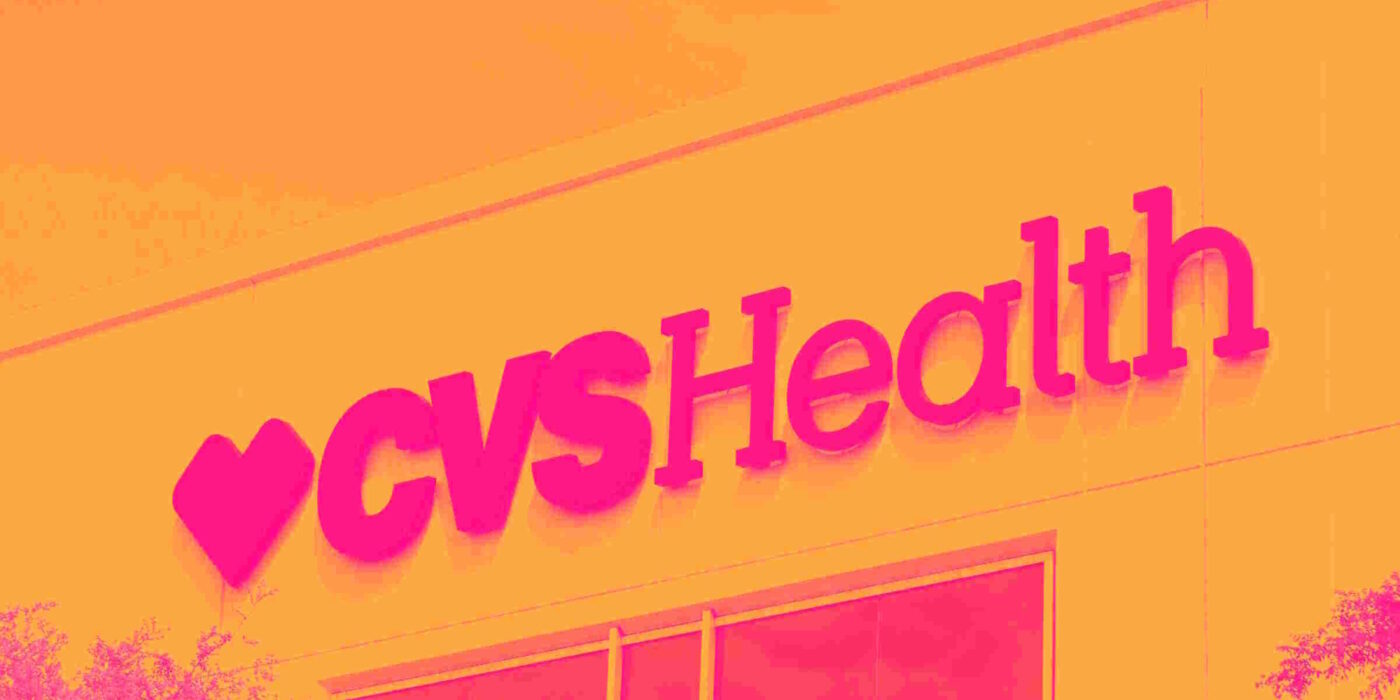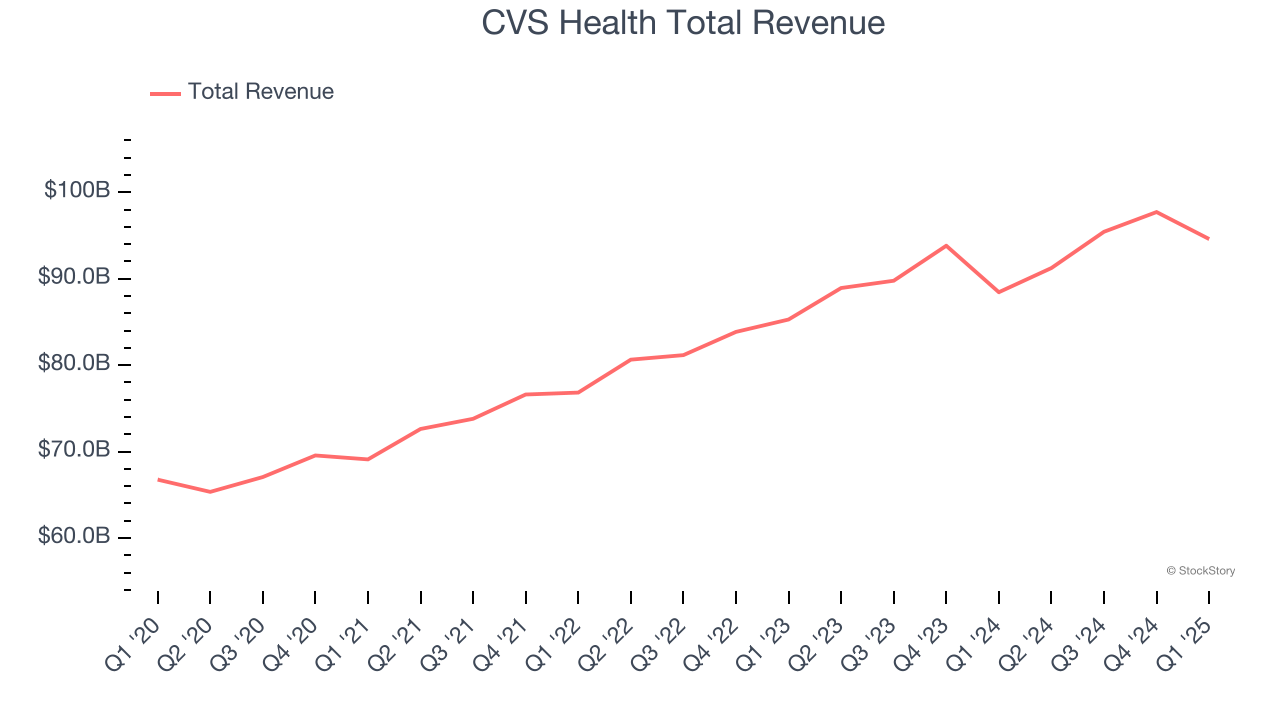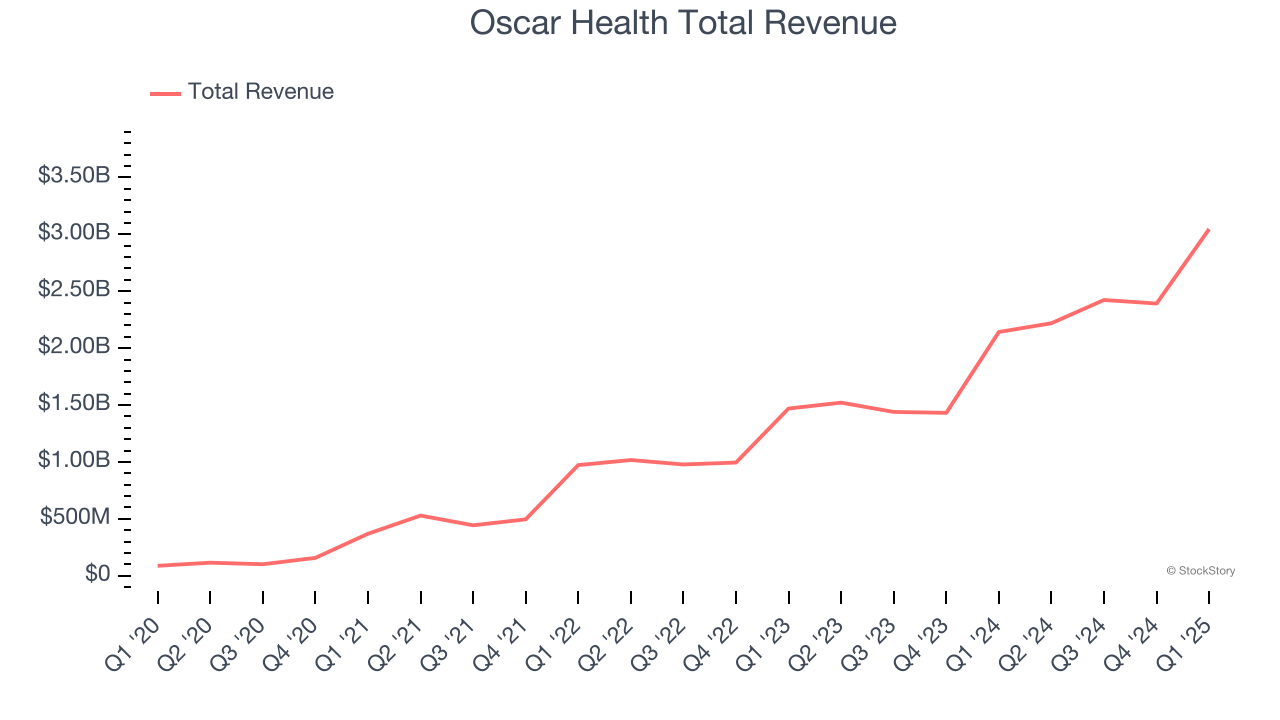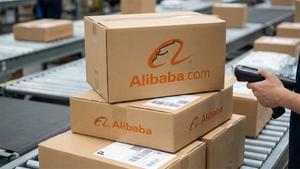
Earnings results often indicate what direction a company will take in the months ahead. With Q1 behind us, let’s have a look at CVS Health (NYSE: CVS) and its peers.
Upfront premiums collected by health insurers lead to reliable revenue, but profitability ultimately depends on accurate risk assessments and the ability to control medical costs. Health insurers are also highly sensitive to regulatory changes and economic conditions such as unemployment. Going forward, the industry faces tailwinds from an aging population, increasing demand for personalized healthcare services, and advancements in data analytics to improve cost management. However, continued regulatory scrutiny on pricing practices, the potential for government-led reforms such as expanded public healthcare options, and inflation in medical costs could add volatility to margins. One big debate among investors is the long-term impact of AI and whether it will help underwriting, fraud detection, and claims processing or whether it may wade into ethical grey areas like reinforcing biases and widening disparities in medical care.
The 12 health insurance providers stocks we track reported a strong Q1. As a group, revenues beat analysts’ consensus estimates by 3.3% while next quarter’s revenue guidance was in line.
Amidst this news, share prices of the companies have had a rough stretch. On average, they are down 14% since the latest earnings results.
CVS Health (NYSE: CVS)
With over 9,000 retail pharmacy locations serving as neighborhood health destinations across America, CVS Health (NYSE: CVS) operates retail pharmacies, provides pharmacy benefit management services, and offers health insurance through its Aetna subsidiary.
CVS Health reported revenues of $94.59 billion, up 7% year on year. This print exceeded analysts’ expectations by 1.5%. Overall, it was an exceptional quarter for the company with a solid beat of analysts’ same-store sales estimates and an impressive beat of analysts’ EPS estimates.

CVS Health delivered the slowest revenue growth of the whole group. Interestingly, the stock is up 1.1% since reporting and currently trades at $67.43.
Is now the time to buy CVS Health? Access our full analysis of the earnings results here, it’s free.
Best Q1: Oscar Health (NYSE: OSCR)
Founded in 2012 to simplify the notoriously complex American healthcare system, Oscar Health (NYSE: OSCR) is a technology-focused health insurance company that offers individual and small group health plans through its cloud-native platform.
Oscar Health reported revenues of $3.05 billion, up 42.2% year on year, outperforming analysts’ expectations by 6.9%. The business had a stunning quarter with an impressive beat of analysts’ EPS estimates.

The market seems happy with the results as the stock is up 25.8% since reporting. It currently trades at $16.47.
Is now the time to buy Oscar Health? Access our full analysis of the earnings results here, it’s free.
Weakest Q1: UnitedHealth (NYSE: UNH)
With over 100 million people served across its various businesses and a workforce of more than 400,000, UnitedHealth Group (NYSE: UNH) operates a health insurance business and Optum, a healthcare services division that provides everything from pharmacy benefits to primary care.
UnitedHealth reported revenues of $109.6 billion, up 9.8% year on year, falling short of analysts’ expectations by 1.7%. It was a softer quarter as it posted a significant miss of analysts’ full-year EPS guidance estimates and a slight miss of analysts’ EPS estimates.
UnitedHealth delivered the weakest performance against analyst estimates in the group. The company added 395,000 customers to reach a total of 54.12 million. As expected, the stock is down 47.3% since the results and currently trades at $308.55.
Read our full analysis of UnitedHealth’s results here.
Cigna (NYSE: CI)
With roots dating back to 1792 and serving millions of customers across the globe, The Cigna Group (NYSE: CI) provides healthcare services through its Evernorth Health Services and Cigna Healthcare segments, offering pharmacy benefits, specialty care, and medical plans.
Cigna reported revenues of $65.5 billion, up 14.4% year on year. This result topped analysts’ expectations by 8.4%. Taking a step back, it was a satisfactory quarter as it also produced a decent beat of analysts’ EPS estimates.
Cigna pulled off the biggest analyst estimates beat among its peers. The company lost 1.14 million customers and ended up with a total of 16.36 million. The stock is down 4.5% since reporting and currently trades at $319.75.
Read our full, actionable report on Cigna here, it’s free.
Cencora (NYSE: COR)
Formerly known as AmerisourceBergen until its 2023 rebranding, Cencora (NYSE: COR) is a global pharmaceutical distribution company that connects manufacturers with healthcare providers while offering logistics, data analytics, and consulting services.
Cencora reported revenues of $75.45 billion, up 10.3% year on year. This number was in line with analysts’ expectations. Aside from that, it was a mixed quarter as it underperformed in some other aspects of the business.
The stock is up 2% since reporting and currently trades at $296.23.
Read our full, actionable report on Cencora here, it’s free.
Market Update
As a result of the Fed’s rate hikes in 2022 and 2023, inflation has come down from frothy levels post-pandemic. The general rise in the price of goods and services is trending towards the Fed’s 2% goal as of late, which is good news. The higher rates that fought inflation also didn't slow economic activity enough to catalyze a recession. So far, soft landing. This, combined with recent rate cuts (half a percent in September 2024 and a quarter percent in November 2024) have led to strong stock market performance in 2024. The icing on the cake for 2024 returns was Donald Trump’s victory in the U.S. Presidential Election in early November, sending major indices to all-time highs in the week following the election. Still, debates around the health of the economy and the impact of potential tariffs and corporate tax cuts remain, leaving much uncertainty around 2025.
Want to invest in winners with rock-solid fundamentals? Check out our Hidden Gem Stocks and add them to your watchlist. These companies are poised for growth regardless of the political or macroeconomic climate.




